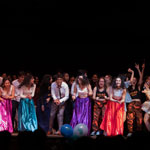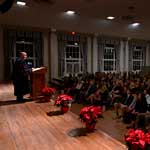
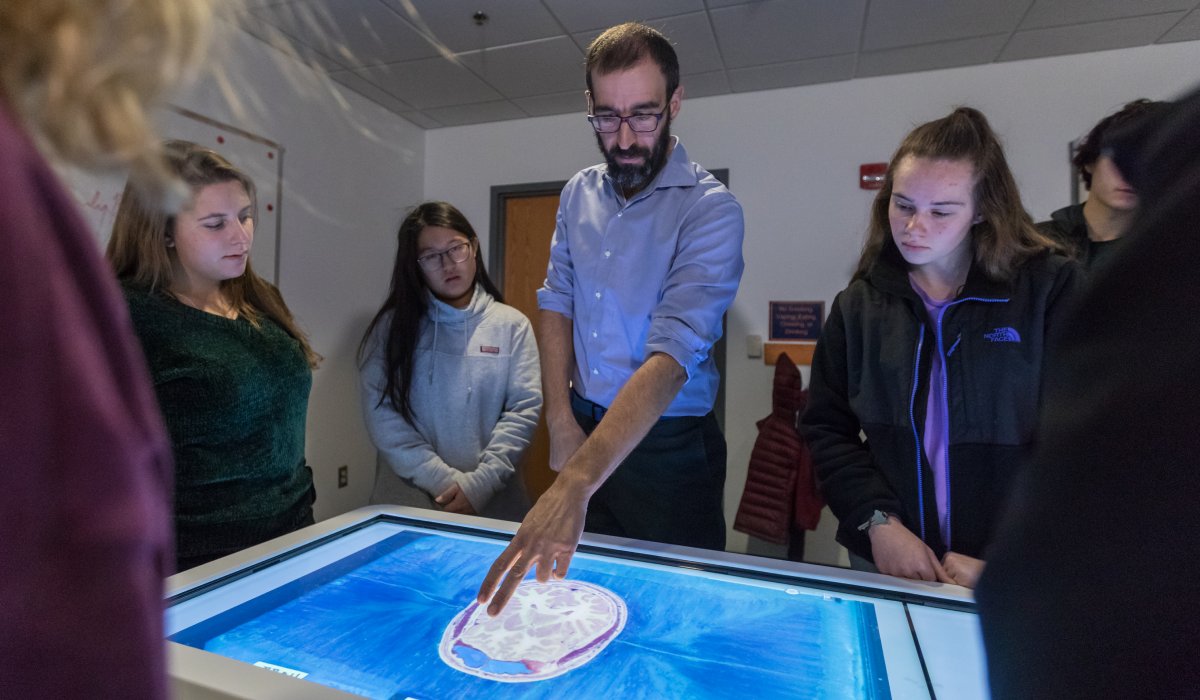
At Gettysburg, all first-year students are required to take a class called a First-Year Seminar. These seminars are interdisciplinary classes focused on a common topic of interest. They count as part of the Gettysburg curriculum, but first and foremost, they’re a tool to help you get oriented at the College while also studying something you find interesting.
Living and studying together in your first year
By Matt Semon ’23
Students are housed in the same building as people from their First-Year Seminar. This is meant to foster a sense of community. You’ll be living in the same space as people who have at least one similar interest as you, allowing you to become more familiar with your classmates.
I lived in Huber my first year, and knowing some folks who I knew well in an academic setting definitely made the environment feel more welcoming. Passing each other in the common room, the class itself, or homework was always fair game as a conversation starter. If a movie was on screen or a board game was being played, invites were always given. I’m approaching my final year here at Gettysburg, and I’m still close friends with a handful of my First-Year Seminar classmates.
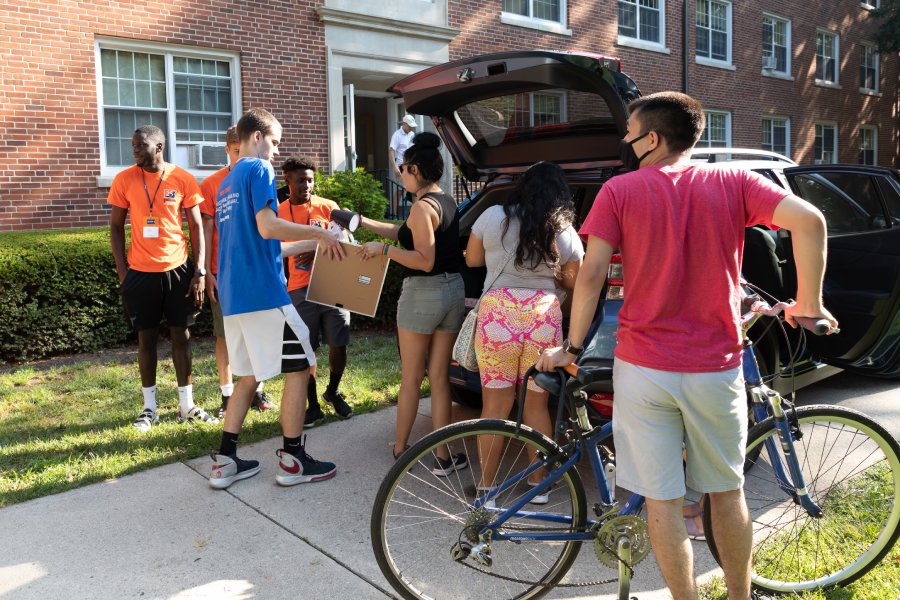
The value of experiential learning
By Matt Semon ’23
Many seminars value experiential learning or using forms of media to learn from and analyze other aspects of culture. As such, many of the seminars incorporate unique field visits or other events. For instance, in my First-Year Seminar on Protest Music with Education Prof. Dave Powell, my class booked two artists whose work is protest-oriented: Erin McKeown and Raye Zaragoza. The event in the evening was open to all of campus. Earlier that day, the students from the seminar got to have lunch with the artists, as well as their mutual friend Hilary Saunders, the editor of the Americana music magazine No Depression. It was a surreal experience meeting them after studying and analyzing their music.
Late in the semester, our professor asked us if we all wanted to go to a concert together if he provided the tickets. The artist was Patterson Hood, the lead singer of the Drive-By Truckers, a band that we had studied immensely. With the help of a faculty member who regularly sat in on our class, we even got the chance to talk with him before the concert. It was a wonderful culmination of what we had studied during the semester. So much of art, and protest music in particular, is centered around personal experience and storytelling, and being able to see an artist perform live songs about their mother marrying a semi-truck driver, an uncle’s experience from the Vietnam War, or the loss of a dear friend to AIDs is the purest form of the genre, and an experience I would not have been able to have without this class.
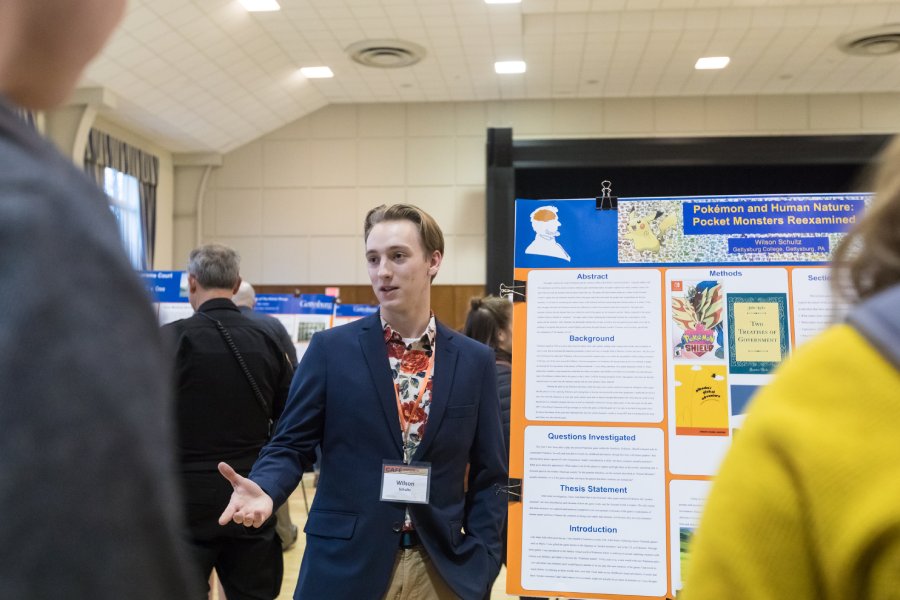
Interacting with the subject matter
By Ankit Daga ’25
My First-Year Seminar was Japanese Pop Culture with East Asian Studies Prof. Eleanor J. Hogan. The seminar was about the different aspects of the Japanese entertainment industry. For instance, one of our topics was looking deep into the history of Godzilla, seeing why it was created, and how it changed over time as it was exposed to other countries such as the United States.
Godzilla was made after World War II and was shown as a prehistoric creature resurrected by the nuclear radiation of the atomic bombs. As the people of Japan suffered heavy casualties due to the bombings, creating a movie where the nuclear monster was defeated by the people was a way they coped with their reality. To the people of Japan, Godzilla was the nuclear bomb itself that had devastated their lives forever.
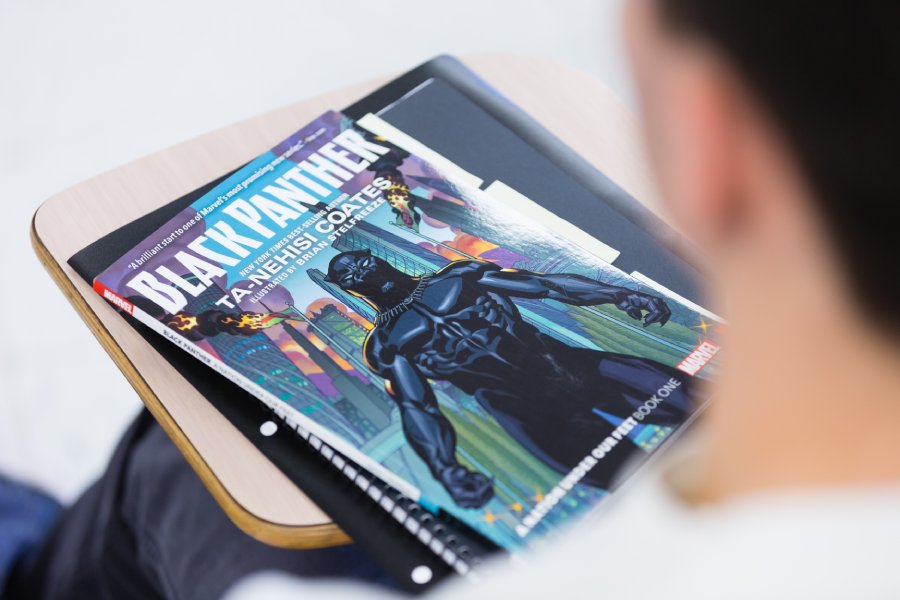
However, when the movie was adapted by the U.S., it was turned into a simple generic monster movie for people of any age to enjoy, leaving out all the underlying messages and the deep meaning the movie had attempted to convey when it was made originally. In fact, the title was originally “Gojira,” combining the word “gorilla” and “kujira” (Japanese for whale). The name was later modified to Godzilla as it was easier for the people to say. This is only one of many topics we went through in my seminar, and as the classes went by, it seemed like Godzilla was just the tip of the iceberg.
Our classes were very interactive where we would bring up a topic and discuss among one another. Our assignments involved watching various movies and anime and trying to find the underlying message portrayed to the audience and why they were important to the Japanese culture.
Matt Semon ’23 is a psychology major with minors in peace and justice studies and Middle Eastern and Islamic studies. In addition to serving as an Admissions tour guide, he is the training director and a DJ for the campus radio station 91.1 WZBT, a research assistant in psychology, and the Student Senate representative for the Jazz Appreciation Society and Colleges Against Cancer.
Ankit Daga ’25 is a biochemistry and molecular biology major and data science minor. His campus activities include working as a tour guide with Admissions, serving as a career ambassador with the Center for Career Engagement, working as a fitness attendant at the Jaeger Center for Athletics, Recreation, and Fitness, and coaching the table tennis club.
By Matt Semon ’23 and Ankit Daga '25
Photos by Shawna Sherrell
Posted: 07/28/22

